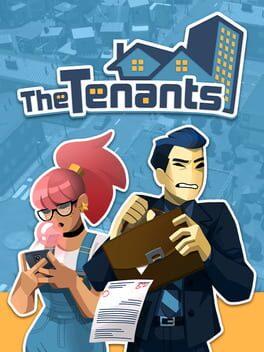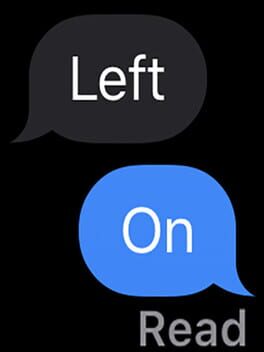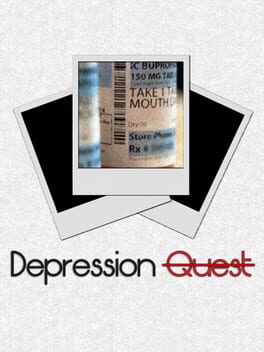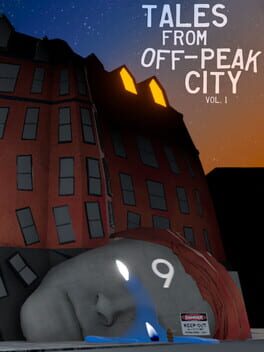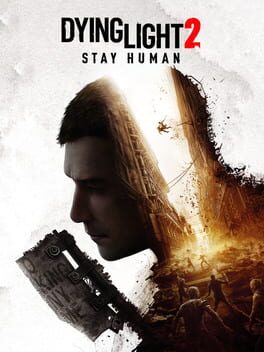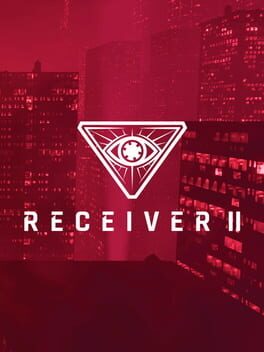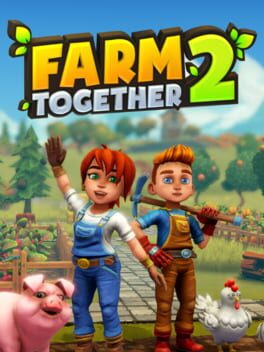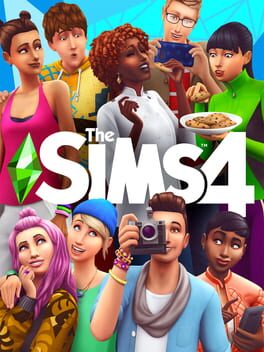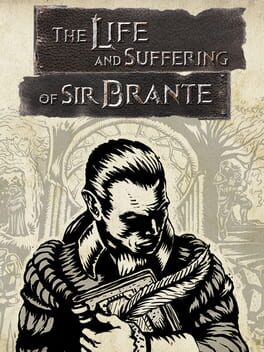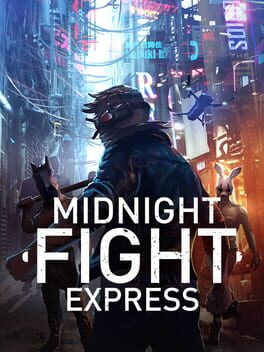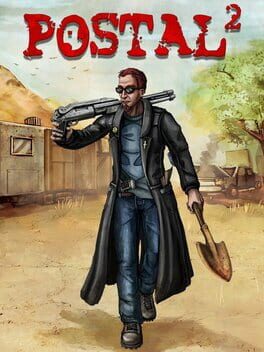jobosno
BACKER
2021
2020
i've never played a game where i have wanted so badly to torpedo a conversation just to get out of it. a remarkably realistic (read: unbearable) depiction of attempting to hold a text conversation with two of the worst conversationalists on the planet
if you didn't select the responses by platforming it would be even more obvious just how stiff and stilted this conversation actually is. it's a miracle either of these people decided to talk to the other after more than a week of this, because i was ready to tap out after 15 straight minutes of "just chillen, u?" In truth, the most wild detail of this story is that these bland conversations are apparently the noteworthy parts of this relationship over the course of several months.
if you didn't select the responses by platforming it would be even more obvious just how stiff and stilted this conversation actually is. it's a miracle either of these people decided to talk to the other after more than a week of this, because i was ready to tap out after 15 straight minutes of "just chillen, u?" In truth, the most wild detail of this story is that these bland conversations are apparently the noteworthy parts of this relationship over the course of several months.
2013
"You tell her how it's more than just feeling sad sometimes, how you feel trapped by your own mind sometimes, how sometimes you feel nothing at all, and how you can't shake it off."
It's a little unfortunate that Depression Quest has become radioactive through its association with Zoe Quinn and the dumpster fire that was GamerGate, because it was quite a pleasant surprise for me. It's hardly the most radical project out there, and I imagine that it doesn't do a great job of explaining the experience of depression to those without. However, as someone who's able to relate to most of what's depicted within, it's a really strange experience that hits so close to home that I feel an uncomfortable level of exposure while playing it, like the game is looking right at me.
I consider myself fortunate enough to have never experienced suicidal ideation, but the complete inability to muster up the motivation for just about anything is something I can absolutely relate to. Of the few people I know have played Depression Quest, a few have looked at the choices available to the player and expressed frustration that their menu includes items that are crossed out. Why put them there? I think this is one of the game's smarter points: You absolutely know that you could just do it, just commit to that social outing with friends you genuinely appreciate - but it's not actually an option. Hell, it's excruciating to seriously consider it. And all that aggravation that you feel in the game, feeling like the game has railroaded you into taking shitty options time and again, IRL all that aggravation gets funneled inward because you don't have a good reason for being like this! Despite being intimately familiar with your own feelings, you can't really come up with an explanation for your broken brain that doesn't feel like bullshit on some level. How the fuck are you supposed to explain to yourself - much less anyone else - why brushing your teeth feels like one of the Labors of Hercules?
So I understand why this game is frustrating to play. Even if I distance myself (and my personal experiences) from the game a bit, I respect the hell out of it for being frustrating. It gives the game a kind of authenticity that I admire because it turns so many people off. It makes an honest attempt at depicting the experience of being depressed and does a decent enough job that it was definitely recognizable for me. I don't know if it's possible to make these depictions vivid enough that they truly connect with the average person, but I respect the creators for putting forth the effort, given that this person has also experienced that crippling lack of motivation. I can't imagine what it's like to release a project like this and have it indirectly cast such a long shadow over the video game industry for years afterward.
This is a free game that I want to recommend, but I don't know who I would recommend it to. It's not fun, per se, but it has value as an art piece that reflects the artist's feelings. I think it will have the most value for those who take a genuine interest in the feelings of strangers and those who experience comfort (or modest discomfort) in knowing that others share their struggles.
It's a little unfortunate that Depression Quest has become radioactive through its association with Zoe Quinn and the dumpster fire that was GamerGate, because it was quite a pleasant surprise for me. It's hardly the most radical project out there, and I imagine that it doesn't do a great job of explaining the experience of depression to those without. However, as someone who's able to relate to most of what's depicted within, it's a really strange experience that hits so close to home that I feel an uncomfortable level of exposure while playing it, like the game is looking right at me.
I consider myself fortunate enough to have never experienced suicidal ideation, but the complete inability to muster up the motivation for just about anything is something I can absolutely relate to. Of the few people I know have played Depression Quest, a few have looked at the choices available to the player and expressed frustration that their menu includes items that are crossed out. Why put them there? I think this is one of the game's smarter points: You absolutely know that you could just do it, just commit to that social outing with friends you genuinely appreciate - but it's not actually an option. Hell, it's excruciating to seriously consider it. And all that aggravation that you feel in the game, feeling like the game has railroaded you into taking shitty options time and again, IRL all that aggravation gets funneled inward because you don't have a good reason for being like this! Despite being intimately familiar with your own feelings, you can't really come up with an explanation for your broken brain that doesn't feel like bullshit on some level. How the fuck are you supposed to explain to yourself - much less anyone else - why brushing your teeth feels like one of the Labors of Hercules?
So I understand why this game is frustrating to play. Even if I distance myself (and my personal experiences) from the game a bit, I respect the hell out of it for being frustrating. It gives the game a kind of authenticity that I admire because it turns so many people off. It makes an honest attempt at depicting the experience of being depressed and does a decent enough job that it was definitely recognizable for me. I don't know if it's possible to make these depictions vivid enough that they truly connect with the average person, but I respect the creators for putting forth the effort, given that this person has also experienced that crippling lack of motivation. I can't imagine what it's like to release a project like this and have it indirectly cast such a long shadow over the video game industry for years afterward.
This is a free game that I want to recommend, but I don't know who I would recommend it to. It's not fun, per se, but it has value as an art piece that reflects the artist's feelings. I think it will have the most value for those who take a genuine interest in the feelings of strangers and those who experience comfort (or modest discomfort) in knowing that others share their struggles.
Truly incredible. I saw someone else say that this game can flip flop between being the best game and the worst game in the same ten minutes and good god, they were right on the money.
- This is the most fun I've had with first-person parkour in any game. Not Dying Light 1, not Mirror's Edge. It's a bit floatier than DL1 because you now lightly snap to thin/narrow terrain. After about an hour of play you get used to it. After a little more time and a few more skills, the convoluted paths laid out for early-game Aiden are more a suggestion than anything. This game hits new heights once you can completely disregard the paths laid out before you and blaze your own trail.
- Gear just does not matter at all. You get 5 pieces of gear with bonuses of 1-2% each. I usually just pick whatever gear has XP bonuses.
- Things like the immunity system actually make night and dark areas scary again. Sleeping biters are a fun incentive to come back to places in the middle of the night.
- The new upgrade system sucks. I don't mind the inhibitors, but all the skills in the skill tree feel kind of limp and way too situational to ever be useful. Compared to things like "you get a grappling hook" or "here's unlimited combat stamina" from DL1, the Big Final Perk in each tree is worth less than dirt.
- Rarely, Aiden will giggle or cheer himself on when you do one of the parkour skills you've learned, and it's so goofy and childlike that it's really endearing. I notice it once every 6 hours or so (infrequently enough to avoid annoyance) but it does a lot to make Crane 2 feel more organic than Crane 1 ever did.
- I quite like the new grappling hook! I know people are disappointed it doesn't just let you Spiderman around (it actually uses physics now) but I like this system a little more, feels a little more skillful, a little more interactive.
- The heights of the second half of the map are thrilling! I don't much care for the paraglider and generally try to avoid using it as much as possible, but when you're running on the side of a skyscraper it feels a lot different than making small jumps between mid-rise residential buildings (like those in Old Town in DL1).
- The story. Oh boy the story. I was essentially neutral on the story until the epilogue - the voice acting oscillates between passable and mind-boggling, and Rosario Dawson makes a prominent appearance as an insufferable Marvel character.
- The ending. I'm not going to spoil anything, but in the ending I got on my first run most of what happens was essentially pulled out of thin air. I think I confused the game with my choices because I watched a character shoot themselves in the head in the center of my screen only for the epilogue to say they're ruling the city.
- The faction system had the potential to be interesting but I just cannot bring myself to care about the Survivors at all. They are just a thoroughly charmless group who consistently treat you like you're the biggest asshole they've ever met. I saw no reason to not side with the Peacekeepers until roughly halfway through the story when the game decides some shit needs to happen so I can make some big story choices.
- Why would you remove text chat? Accessibility issues aside, I'm not trying to hear chip bags and music from two rooms over.
- This is the most fun I've had with first-person parkour in any game. Not Dying Light 1, not Mirror's Edge. It's a bit floatier than DL1 because you now lightly snap to thin/narrow terrain. After about an hour of play you get used to it. After a little more time and a few more skills, the convoluted paths laid out for early-game Aiden are more a suggestion than anything. This game hits new heights once you can completely disregard the paths laid out before you and blaze your own trail.
- Gear just does not matter at all. You get 5 pieces of gear with bonuses of 1-2% each. I usually just pick whatever gear has XP bonuses.
- Things like the immunity system actually make night and dark areas scary again. Sleeping biters are a fun incentive to come back to places in the middle of the night.
- The new upgrade system sucks. I don't mind the inhibitors, but all the skills in the skill tree feel kind of limp and way too situational to ever be useful. Compared to things like "you get a grappling hook" or "here's unlimited combat stamina" from DL1, the Big Final Perk in each tree is worth less than dirt.
- Rarely, Aiden will giggle or cheer himself on when you do one of the parkour skills you've learned, and it's so goofy and childlike that it's really endearing. I notice it once every 6 hours or so (infrequently enough to avoid annoyance) but it does a lot to make Crane 2 feel more organic than Crane 1 ever did.
- I quite like the new grappling hook! I know people are disappointed it doesn't just let you Spiderman around (it actually uses physics now) but I like this system a little more, feels a little more skillful, a little more interactive.
- The heights of the second half of the map are thrilling! I don't much care for the paraglider and generally try to avoid using it as much as possible, but when you're running on the side of a skyscraper it feels a lot different than making small jumps between mid-rise residential buildings (like those in Old Town in DL1).
- The story. Oh boy the story. I was essentially neutral on the story until the epilogue - the voice acting oscillates between passable and mind-boggling, and Rosario Dawson makes a prominent appearance as an insufferable Marvel character.
- The ending. I'm not going to spoil anything, but in the ending I got on my first run most of what happens was essentially pulled out of thin air. I think I confused the game with my choices because I watched a character shoot themselves in the head in the center of my screen only for the epilogue to say they're ruling the city.
- The faction system had the potential to be interesting but I just cannot bring myself to care about the Survivors at all. They are just a thoroughly charmless group who consistently treat you like you're the biggest asshole they've ever met. I saw no reason to not side with the Peacekeepers until roughly halfway through the story when the game decides some shit needs to happen so I can make some big story choices.
- Why would you remove text chat? Accessibility issues aside, I'm not trying to hear chip bags and music from two rooms over.
2020
CW: Light discussion of suicide
When you think about it, it is a little odd how uniform the controls for guns are across games. It’s not even limited to shooters - any game where a gun is in your hands for more than a minute or two will probably have you (on keyboard and mouse) shooting with left click, aiming with right click, and reloading with R. It’s so commonplace that games that dispense with this control scheme tend to stick out in your memory as One Of The Things That Game Does. To be fair, Receiver 2 does still bring back some of what I just mentioned - you shoot with left mouse, aim with right mouse, and R… kind of reloads? Well, it racks the slide. It’s a fairly minor part of reloading given that you don’t do it every time, but it counts. Depending on how you want to break it down (and the state that your gun is in) there are several additional steps, but don’t worry, those all have buttons too, separate buttons.
One of the interesting things about having to press forty goddamn buttons to reload your gun is that it becomes a kind of meditative practice. If you’re able to avoid saying “fuck this” after shooting yourself in the leg on three consecutive reload attempts, you begin to develop muscle memory. This is usually a good thing, but you will have to adapt to different guns or you will go to put your Glock on safety and shoot yourself in the leg in full-auto. This isn’t all about the buttons you press, though, because Receiver 1 had fucky controls too, and this isn’t a review of Receiver 1.
Receiver 2 takes things to the next level in a number of ways - the most obvious is that the game has actual textures now (instead of vaguely gesturing in the direction of “graphics”), but there are also more guns, more tapes, and additional mechanics. Receiver 2 is about diligence. Better textures and lighting means those turrets are better able to blend into the background. More guns means you need to remember additional quirks for each gun. More mechanics means that you can no longer just autopilot once you’ve figured the game out - bullets will richochet, negligent discharges will happen. You will need to listen to the tapes to figure out if it’s safe, or if -
I also mentioned shooting yourself in the leg. This will happen. A lot. It happens significantly less frequently as you get the rhythm of the game, and then you will get the Single-Action Army and you will remember what shooting yourself in the leg is like. I said it’s a game about diligence - the tapes are not joking about understanding the lethality of the tool and "anchoring yourself in the moment". It is not about autopiloting, it is about understanding the process so thoroughly that you can make the correct decision under pressure without hesitation.
So what are all those other tapes about? Why does the dude always sound like he's about to cry? While it’s not very clear if the Receivers are a cult of some kind, they’re at least some kind of movement dedicated to fighting The Threat, a nigh-supernatural force that preys on unsteady or unfocused minds. When its effects are at their worst, this can result in the Receiver taking their own life... and this is where my feelings on the game’s themes become a little mixed. Suicidal people are generally treated with dignity in the game and are still granted agency in its story, despite the influence of “The Threat” on their decisions, but mixing in lore elements when talking about actual suicide feels a touch wrong, even if the message is generally right. It does help the themes of the game come full circle - themes that initially feel like they’re about a spooky ghost that places turrets everywhere, but transform with time into warnings about taking care of your mental health. The Threat Echoes - another new game mechanic - are also a bit indelicate unless you read the reward(?) tapes afterward (they don’t automatically play) where their purpose is made clear: highlighting how easy it is to lose sight of the people who value you and your company when things go south.
It’s not a perfect way to send this message, but it’s very clear the developers put a lot of care in and are sincere about it, and I do think it makes a lot of good smaller points on the way to painting its grander picture. It’s an interesting message to attach to an extremely mechanically unique game, and - in addition to wishing more people played it - I wish there was more exploration of the themes it contains, because I do think there’s a lot to talk about that’s just being left on the table when Receiver 2 does find its way into the conversation.
When you think about it, it is a little odd how uniform the controls for guns are across games. It’s not even limited to shooters - any game where a gun is in your hands for more than a minute or two will probably have you (on keyboard and mouse) shooting with left click, aiming with right click, and reloading with R. It’s so commonplace that games that dispense with this control scheme tend to stick out in your memory as One Of The Things That Game Does. To be fair, Receiver 2 does still bring back some of what I just mentioned - you shoot with left mouse, aim with right mouse, and R… kind of reloads? Well, it racks the slide. It’s a fairly minor part of reloading given that you don’t do it every time, but it counts. Depending on how you want to break it down (and the state that your gun is in) there are several additional steps, but don’t worry, those all have buttons too, separate buttons.
One of the interesting things about having to press forty goddamn buttons to reload your gun is that it becomes a kind of meditative practice. If you’re able to avoid saying “fuck this” after shooting yourself in the leg on three consecutive reload attempts, you begin to develop muscle memory. This is usually a good thing, but you will have to adapt to different guns or you will go to put your Glock on safety and shoot yourself in the leg in full-auto. This isn’t all about the buttons you press, though, because Receiver 1 had fucky controls too, and this isn’t a review of Receiver 1.
Receiver 2 takes things to the next level in a number of ways - the most obvious is that the game has actual textures now (instead of vaguely gesturing in the direction of “graphics”), but there are also more guns, more tapes, and additional mechanics. Receiver 2 is about diligence. Better textures and lighting means those turrets are better able to blend into the background. More guns means you need to remember additional quirks for each gun. More mechanics means that you can no longer just autopilot once you’ve figured the game out - bullets will richochet, negligent discharges will happen. You will need to listen to the tapes to figure out if it’s safe, or if -
I also mentioned shooting yourself in the leg. This will happen. A lot. It happens significantly less frequently as you get the rhythm of the game, and then you will get the Single-Action Army and you will remember what shooting yourself in the leg is like. I said it’s a game about diligence - the tapes are not joking about understanding the lethality of the tool and "anchoring yourself in the moment". It is not about autopiloting, it is about understanding the process so thoroughly that you can make the correct decision under pressure without hesitation.
So what are all those other tapes about? Why does the dude always sound like he's about to cry? While it’s not very clear if the Receivers are a cult of some kind, they’re at least some kind of movement dedicated to fighting The Threat, a nigh-supernatural force that preys on unsteady or unfocused minds. When its effects are at their worst, this can result in the Receiver taking their own life... and this is where my feelings on the game’s themes become a little mixed. Suicidal people are generally treated with dignity in the game and are still granted agency in its story, despite the influence of “The Threat” on their decisions, but mixing in lore elements when talking about actual suicide feels a touch wrong, even if the message is generally right. It does help the themes of the game come full circle - themes that initially feel like they’re about a spooky ghost that places turrets everywhere, but transform with time into warnings about taking care of your mental health. The Threat Echoes - another new game mechanic - are also a bit indelicate unless you read the reward(?) tapes afterward (they don’t automatically play) where their purpose is made clear: highlighting how easy it is to lose sight of the people who value you and your company when things go south.
It’s not a perfect way to send this message, but it’s very clear the developers put a lot of care in and are sincere about it, and I do think it makes a lot of good smaller points on the way to painting its grander picture. It’s an interesting message to attach to an extremely mechanically unique game, and - in addition to wishing more people played it - I wish there was more exploration of the themes it contains, because I do think there’s a lot to talk about that’s just being left on the table when Receiver 2 does find its way into the conversation.
2024
keeping this one short because i'm roughly 20 years older than this game's most devoted fans and i very much doubt they're combing this site for reviews
when i wrote about the original game i mostly did so to highlight the ways in which the game is careful and considered instead of merely being 3d farmville and i'm pleased to report that's still the case here, but farm together 2 is closer to a major update than it is an entirely new game. it is extremely conservative for a sequel. the average player will wonder what the point of this is, but the newbies will like this one more than the first one and there's a lot of QOL stuff for the true devotees. a lot of ways in which the first game could be a little weird / ugly / have clunky menuing have been smoothed out here and while i think pulling a city folk and adding a town is a bit silly, it fixes things like half your farm being covered in hideous trucks and shops and storage facilities to convert your 10 million clownfish corpses into diamonds. that's the kind of change you're looking at, things that do meaningfully affect systems, but their impact is felt most strongly in the long-term and doesn't make for nice, neat selling points - at least, not at this stage. if there's anything of note for casual players it's that they've turbocharged the early game, allowing you to operate at scale quickly instead of nursing 5 lettuce plants for 10 real-life hours.
if you're gonna buy one of the games in this series, buy this one. if you already own the first one, then wait a bit. holding off on rating this one until i've seen a bit more, but i expect to revisit this later once its had time to grow into its own thing
when i wrote about the original game i mostly did so to highlight the ways in which the game is careful and considered instead of merely being 3d farmville and i'm pleased to report that's still the case here, but farm together 2 is closer to a major update than it is an entirely new game. it is extremely conservative for a sequel. the average player will wonder what the point of this is, but the newbies will like this one more than the first one and there's a lot of QOL stuff for the true devotees. a lot of ways in which the first game could be a little weird / ugly / have clunky menuing have been smoothed out here and while i think pulling a city folk and adding a town is a bit silly, it fixes things like half your farm being covered in hideous trucks and shops and storage facilities to convert your 10 million clownfish corpses into diamonds. that's the kind of change you're looking at, things that do meaningfully affect systems, but their impact is felt most strongly in the long-term and doesn't make for nice, neat selling points - at least, not at this stage. if there's anything of note for casual players it's that they've turbocharged the early game, allowing you to operate at scale quickly instead of nursing 5 lettuce plants for 10 real-life hours.
if you're gonna buy one of the games in this series, buy this one. if you already own the first one, then wait a bit. holding off on rating this one until i've seen a bit more, but i expect to revisit this later once its had time to grow into its own thing
2014
It took me an embarrassingly long time to realize that my (slight) discomfort when playing the Sims comes from the fact that I constantly boot it up expecting a different experience than the developers are willing to provide. The Sims contains a truly insane range of activities, hobbies, etc. that you probably wish you had the time/money to master IRL - as things are in the Sims 4 right now, you could go to your day job (President of whatever country this is), come home, learn how to bring a ghost back to life, go skiing, build a relationship with your pet llama, and write a hit song before you have to go to work again the next day. Honestly, it's kinda rad! I like that there's a huge variety of things for your Sims to dabble in and improve at. It's nice hopping between activities and watching your Sim grow, watching them rack up a truly silly number of life achievements. Despite this, playing the Sims feels like I'm constantly speedrunning activities and careers without really getting to enjoy any of them, and it took playing Project Zomboid and a couple major Sims mods to understand why.
The Sims games are very good at simulating social interactions, to the point where just clicking someone and selecting "Friendly" gives you a downright overwhelming number of conversation choices, from telling knock-knock jokes, to trying to console them, to just unloading on the poor fucker about every hobby you have (I think the "sentiment" system is one of the best things the Sims has ever added and I really want to praise them for that, but that's a topic for another day). Improving skills, on the other hand, seems to be less about playing out the fantasy of building expertise and more about providing opportunities to socialize, acquire money, or smooth out other inconveniences (e.g. becoming so good at repairing something that you can make items unbreakable). Bringing your Do Things Level from 1 to 5 mostly looks like clicking the "Do Things" or "Research Doing Things" buttons over and over until you unlock the ability to "Do Things Quickly".
To be clear, I don't think this is a problem, I just think it's a mismatch between developer focus and what I want in a life sim. But it's clear that the Sims is capable of more, because some of the most fun I've had with the game comes from the skills that change how you interact with the game, or ones that link with other skills. Cooking is already one of the more interesting skills because it's split into 3 different types of cooking - cooking, baking, and gourmet cooking, where you have to choose portion sizes and account for the dietary preferences of the sims eating the food. Acquiring the DLC that lets you grow a garden means you can try to live entirely off your own home-grown food, and when you have virtually no money and no recipes to cook at the start, the challenge it provides was enough to single-handedly renew my interest in the game.
This is what I want more of! I think the Sims would truly ensnare players to a dangerous degree if there were more of these skills that allow you to really dedicate your attention to improving them and working with their systems. There are mods that allow you to use the systems present in the game to grow and sell drugs, interfacing with the cooking system (making edibles), the social system (can discuss/share drugs), and the aging/family system (parents can search their teens' furniture for hidden drugs). I mentioned Project Zomboid earlier, and I think the Sims could learn a lot from Zomboid's approach - the way that many skills are still primarily performed through menus, but there are additional layers of investment required to interact with them. Cooking requires that you have the correct utensils (and is done by selecting a recipe template and filling it with compatible ingredients); repairing a car requires that you have the replacement parts, the tools to remove/install said parts, and also the tools to remove/reinstall any parts that are in the way of whatever you're working on. This is a bit technical, and I think it works for Zomboid, but it would definitely require some tuning to work in the context of the Sims, which is a far more casual game with a more casual audience.
I'm asking for a lot here, because I think the Sims is at its best when it offers players the option to really get lost in a fantasy, instead of skimming the surface of twenty different fantasies. Other games will always do this better if you want to go play a dedicated Lumberjack Simulator or MouthSimulater [sic], but by adding like 20% more depth to the skills and/or changing the ways they interact with each other, the Sims may just start consuming the souls of unsuspecting players.
The Sims games are very good at simulating social interactions, to the point where just clicking someone and selecting "Friendly" gives you a downright overwhelming number of conversation choices, from telling knock-knock jokes, to trying to console them, to just unloading on the poor fucker about every hobby you have (I think the "sentiment" system is one of the best things the Sims has ever added and I really want to praise them for that, but that's a topic for another day). Improving skills, on the other hand, seems to be less about playing out the fantasy of building expertise and more about providing opportunities to socialize, acquire money, or smooth out other inconveniences (e.g. becoming so good at repairing something that you can make items unbreakable). Bringing your Do Things Level from 1 to 5 mostly looks like clicking the "Do Things" or "Research Doing Things" buttons over and over until you unlock the ability to "Do Things Quickly".
To be clear, I don't think this is a problem, I just think it's a mismatch between developer focus and what I want in a life sim. But it's clear that the Sims is capable of more, because some of the most fun I've had with the game comes from the skills that change how you interact with the game, or ones that link with other skills. Cooking is already one of the more interesting skills because it's split into 3 different types of cooking - cooking, baking, and gourmet cooking, where you have to choose portion sizes and account for the dietary preferences of the sims eating the food. Acquiring the DLC that lets you grow a garden means you can try to live entirely off your own home-grown food, and when you have virtually no money and no recipes to cook at the start, the challenge it provides was enough to single-handedly renew my interest in the game.
This is what I want more of! I think the Sims would truly ensnare players to a dangerous degree if there were more of these skills that allow you to really dedicate your attention to improving them and working with their systems. There are mods that allow you to use the systems present in the game to grow and sell drugs, interfacing with the cooking system (making edibles), the social system (can discuss/share drugs), and the aging/family system (parents can search their teens' furniture for hidden drugs). I mentioned Project Zomboid earlier, and I think the Sims could learn a lot from Zomboid's approach - the way that many skills are still primarily performed through menus, but there are additional layers of investment required to interact with them. Cooking requires that you have the correct utensils (and is done by selecting a recipe template and filling it with compatible ingredients); repairing a car requires that you have the replacement parts, the tools to remove/install said parts, and also the tools to remove/reinstall any parts that are in the way of whatever you're working on. This is a bit technical, and I think it works for Zomboid, but it would definitely require some tuning to work in the context of the Sims, which is a far more casual game with a more casual audience.
I'm asking for a lot here, because I think the Sims is at its best when it offers players the option to really get lost in a fantasy, instead of skimming the surface of twenty different fantasies. Other games will always do this better if you want to go play a dedicated Lumberjack Simulator or MouthSimulater [sic], but by adding like 20% more depth to the skills and/or changing the ways they interact with each other, the Sims may just start consuming the souls of unsuspecting players.
2022
- Good core concept! I'm a sucker for these (somewhat) inventive takes on sports, and while this is fundamentally still just air hockey, the MOBA character gimmick pulls enough of its weight that I almost immediately found myself spam queueing for games, trying to hone a strategy based on what went wrong in the last match.
- A lot of basic functionality missing at the moment. I didn't know that you could view champion abilities before entering a game, because the button to look at that information is one of the smallest on the main menu. Attempting to report a player opens a browser window - if you want players to actually report toxic behavior, you should do everything in your power to make it as easy as possible. The lack of communication makes it hard to grief your teammates, but it also means that you can't ping where you're sending the ball, you can't ask for a position swap, and attempting to strategize mostly looks like an attempt to induce Pavlovian conditioning in your teammates. The main menu has several dropdowns that don't look anything like dropdowns, meaning it's unclear how to change your character's passive abilities, what position you want to play, how to change the "default" character (the one selected automatically when starting a match), until you've clicked around enough to stumble across it. No dealbreakers here, the game is playable, but this is absolutely the time to make a good impression - once the streamer attention dries up, I'm wondering if this game's charm is strong enough to overcome the lack of QOL features.
- A lot of basic functionality missing at the moment. I didn't know that you could view champion abilities before entering a game, because the button to look at that information is one of the smallest on the main menu. Attempting to report a player opens a browser window - if you want players to actually report toxic behavior, you should do everything in your power to make it as easy as possible. The lack of communication makes it hard to grief your teammates, but it also means that you can't ping where you're sending the ball, you can't ask for a position swap, and attempting to strategize mostly looks like an attempt to induce Pavlovian conditioning in your teammates. The main menu has several dropdowns that don't look anything like dropdowns, meaning it's unclear how to change your character's passive abilities, what position you want to play, how to change the "default" character (the one selected automatically when starting a match), until you've clicked around enough to stumble across it. No dealbreakers here, the game is playable, but this is absolutely the time to make a good impression - once the streamer attention dries up, I'm wondering if this game's charm is strong enough to overcome the lack of QOL features.
One of the best examples of what these choose-your-own-adventure games have to offer. A believable world that you learn about the way an actual child does - some things are explained to you very simply, but you will learn a lot about society through observation only to understand why the world works that way when you're much older. While a world where people can die multiple times is pretty interesting, I don’t feel like they took full advantage of this bit of lore in my first playthrough despite being almost constantly surrounded by death. Of course, it plays a significant role in the part of the game centered around the revolt (a fixed part of the timeline?) but most of the time it came up in my playthroughs, it was related to executions or people who just happened to be due for their “True Death” anyway. The mechanics of being reborn still make dying undesirable, but I may have to do a couple more replays to see if they use this in a more interesting way in other routes.
Unlike many other “Choose your own adventure” games I’m unable to level my usual complaint at it - many of these games grant you outcomes based on a single button press, making them feel unearned. Sir Brante does an excellent job of making all the outcomes in the game feel like natural consequences of your decisions, and trying to juggle all the sources of tension present in the game becomes quite a challenge. Even with the immediate effects of your actions shown, this is by no means an easy game, as each decision has increasing weight as the story goes on, each feeling like it could be the one that comes back to bite you in the end. Characters are given agency, moving their own pieces around and even people who share your goal may take approaches that conflict with yours. Supporting the upheaval of the current order feels just as tense as it should, and while Brante experiences far more excitement than the average person would, he never feels like a superhuman in his fictional context.
This isn’t to say the game is perfect. While the game generally does a good job of making you feel like there’s a diverse pool of possible outcomes, there are a few endings for the Brante family in particular that feel detached from their context in the story. There are also quite a few typos - nothing that really prevents you from understanding a sentence, but there are enough that I had to go back and do a repeat read more than once. Additionally, I feel like showing the possible events at the beginning of the chapter is the game tipping its hand a bit too much at the expense of the story. This would be a little better if the requirements to trigger the events weren’t displayed here, so that you still know what’s possible without knowing what exact stat threshold will guide you to the desired ending.
All that being said, I still think this is the best game of its type on the Steam store right now. It’s got a setting with enough interesting idiosyncrasies that you want to know more, but it's never weighed down with lore dumps. The decisions can be genuinely tough and the NPCs feel like they have real agency in the story, making great use of it by working towards understandable goals. It’s paced well, respects the player’s time, and doesn’t try to drown you in minutiae.
Unlike many other “Choose your own adventure” games I’m unable to level my usual complaint at it - many of these games grant you outcomes based on a single button press, making them feel unearned. Sir Brante does an excellent job of making all the outcomes in the game feel like natural consequences of your decisions, and trying to juggle all the sources of tension present in the game becomes quite a challenge. Even with the immediate effects of your actions shown, this is by no means an easy game, as each decision has increasing weight as the story goes on, each feeling like it could be the one that comes back to bite you in the end. Characters are given agency, moving their own pieces around and even people who share your goal may take approaches that conflict with yours. Supporting the upheaval of the current order feels just as tense as it should, and while Brante experiences far more excitement than the average person would, he never feels like a superhuman in his fictional context.
This isn’t to say the game is perfect. While the game generally does a good job of making you feel like there’s a diverse pool of possible outcomes, there are a few endings for the Brante family in particular that feel detached from their context in the story. There are also quite a few typos - nothing that really prevents you from understanding a sentence, but there are enough that I had to go back and do a repeat read more than once. Additionally, I feel like showing the possible events at the beginning of the chapter is the game tipping its hand a bit too much at the expense of the story. This would be a little better if the requirements to trigger the events weren’t displayed here, so that you still know what’s possible without knowing what exact stat threshold will guide you to the desired ending.
All that being said, I still think this is the best game of its type on the Steam store right now. It’s got a setting with enough interesting idiosyncrasies that you want to know more, but it's never weighed down with lore dumps. The decisions can be genuinely tough and the NPCs feel like they have real agency in the story, making great use of it by working towards understandable goals. It’s paced well, respects the player’s time, and doesn’t try to drown you in minutiae.
2021
Kinda hard to fuck it up when you change so little from a game as good as Horizon 4. They've added a couple additional player-retention systems that I haven't bothered to understand, but the core draw of "arcade/sim-hybrid car game without the 'grind'" is mostly untouched from the previous entry in the series.
Another thing that's mostly untouched is the fact that the cast is almost entirely British, save for two Mexican characters (one of whom is a non-entity) who are ridiculously grating caricatures of Latino people. "Familia" is brought up an almost comical number of times in these unskippable cutscenes, and while the gameplay still carries a lot of the weight, I'm forced to assume that the writers first learned of Mexico (as a concept) less than two weeks before they started working on the game.
I can really only give this an 8 (at the time of this writing) in good conscience because you can blow through most of the cutscenes fairly quickly and start racing unimpeded. Driving around in the 1983 Audi Sport Quattro feels incredible - even if I'm still bitter about them taking the Lancia Delta from me - and I have spent entire play sessions just carving through dirt roads, observing some of the most beautifully arranged scenery I've seen in a racing game (even if individual details don't hold up to scrutiny). The one star missing from this rating feels massive though, and it's because the annoyances will rear their heads and you will remember them when you're done playing. I don't mind checklists in games like this - it can be nice to kill some time by sitting down, knocking out a few mini-objectives and moving on with your day. But with the new accolade system, there are so fucking many of these little achievements and they're so easy to rack up. I unlocked the entire campaign without consciously engaging with this system a single time, making me wonder why they've even bothered to graft this system onto a perfectly fine game instead of just using a normal XP system (the way it already does for player level). I can only assume it's there to torture completionists with an endless torrent of tasks that take two minutes each, keeping them playing this game until FH6 comes out and they can get started on the new checklist.
I suppose, though, that I can only sound so cynical about these things because the game kept me playing long enough for the little nitpicks to leave a blister. When the game started I wasn't really thinking about the aesthetics of British people airdropping vehicles to set up little outposts on Mexican soil - I was taken with the sense of speed, with the gorgeous environment, with the way the soundtrack's energy lined up perfectly with everything happening on screen. I've complained a bit here, and I could complain a lot more - it's a skill I've mastered over the years - but the truth of the matter is that I started out by putting 33 hours into this game over a 4 day weekend, and I will likely do so several more times before I claim to be done with it. I bounce between racing games but always return to Horizon for its variety - variety in race types, in cars (the ever-desired hypercars and the incompetent novelty vehicles), and in open world activities. The experience of playing FH5 will probably never fully live up to my first experiences of playing FH4, but it is absolutely a worthy successor.
Another thing that's mostly untouched is the fact that the cast is almost entirely British, save for two Mexican characters (one of whom is a non-entity) who are ridiculously grating caricatures of Latino people. "Familia" is brought up an almost comical number of times in these unskippable cutscenes, and while the gameplay still carries a lot of the weight, I'm forced to assume that the writers first learned of Mexico (as a concept) less than two weeks before they started working on the game.
I can really only give this an 8 (at the time of this writing) in good conscience because you can blow through most of the cutscenes fairly quickly and start racing unimpeded. Driving around in the 1983 Audi Sport Quattro feels incredible - even if I'm still bitter about them taking the Lancia Delta from me - and I have spent entire play sessions just carving through dirt roads, observing some of the most beautifully arranged scenery I've seen in a racing game (even if individual details don't hold up to scrutiny). The one star missing from this rating feels massive though, and it's because the annoyances will rear their heads and you will remember them when you're done playing. I don't mind checklists in games like this - it can be nice to kill some time by sitting down, knocking out a few mini-objectives and moving on with your day. But with the new accolade system, there are so fucking many of these little achievements and they're so easy to rack up. I unlocked the entire campaign without consciously engaging with this system a single time, making me wonder why they've even bothered to graft this system onto a perfectly fine game instead of just using a normal XP system (the way it already does for player level). I can only assume it's there to torture completionists with an endless torrent of tasks that take two minutes each, keeping them playing this game until FH6 comes out and they can get started on the new checklist.
I suppose, though, that I can only sound so cynical about these things because the game kept me playing long enough for the little nitpicks to leave a blister. When the game started I wasn't really thinking about the aesthetics of British people airdropping vehicles to set up little outposts on Mexican soil - I was taken with the sense of speed, with the gorgeous environment, with the way the soundtrack's energy lined up perfectly with everything happening on screen. I've complained a bit here, and I could complain a lot more - it's a skill I've mastered over the years - but the truth of the matter is that I started out by putting 33 hours into this game over a 4 day weekend, and I will likely do so several more times before I claim to be done with it. I bounce between racing games but always return to Horizon for its variety - variety in race types, in cars (the ever-desired hypercars and the incompetent novelty vehicles), and in open world activities. The experience of playing FH5 will probably never fully live up to my first experiences of playing FH4, but it is absolutely a worthy successor.
2020
An incredible, gorgeous backdrop - it is aesthetically as cyberpunk as anyone could hope for. Towering buildings and layered streets creating a city where its citizens could spend an entire day and never see the sun.
It's a shame, then, that the game is deathly allergic to exploring any of the most interesting ideas that cyberpunk as a setting has to offer. It tells you that body modification is no issue whatsoever, go nuts pal, and refuses to let you even change your haircut. It repeatedly dips its toes into the politics of the world via sidequests, only to come across as scatterbrained (or like the writers didn't communicate with each other) - every attempt at digging into anticapitalist ideas or really just anything on a scale larger than the individual feels like it was included because they had to, because the audience would expect it, not because they actually wanted to explore these ideas by telling stories. Johnny Silverhand is as much an ideologue as he is a rockstar asshole, but the game could not care less about assigning him actual beliefs beyond "grr arasaka make me angy" and it makes him come across as arbitrary and poserish, gesturing at a vague notion of doing things "for the people" without really bothering to explain what his vision of the world without megacorps would look like. Similarly, any quest chains that suggest that you can meaningfully change the world always end in a punchline or some reason why you're unable to change Night City away from what it is, which would be fine if it felt like it was coming from Night City and not from a game developer who didn't want to implement that.
It has plenty to say about the individual, though. From the main story to several sidequests, the game is all about death and legacy and it's actually capable of exploring that in interesting ways at times. V has (unfortunately) decided that the way to become a legend is to have this rise 'n' grind mentality where you just become really good at doing a bunch of different jobs, a lot of which are just helping the police kill people for jaywalking. Unfortunately, this hyper-focus on the individual means that every other part of the story feels weird and unfocused if it's not about V. In truth, this barely had to be a cyberpunk story! It requires some sci-fi elements, sure, but you could plop this plot into a Watch_Dogs game. The complete lack of interest in Night City's other inhabitants completely squanders this setting that is dripping with charisma and a fun level of campy cyberpunk aesthetics.
I wish I had a way to conclude this, but I could talk about this game for hours and not feel finished. I wanted to write a review that wasn't about the bugs or about the (serviceable but unremarkable) gameplay - I wanted to write about the potential I saw in this game. One of Disco Elysium's biggest strengths to me is the way it weaves the characters into the fabric of the city. Cuno, Klaasje, they could only exist in Revachol and you can't take them out of the city without making them into different characters. Part of understanding Revachol is getting to know people like them. I won't ask that every game have the same writing quality as Disco Elysium, but some of the more prominent side characters get this treatment in CP2077 and I wish they had extended that treatment to those with shorter appearances as well. Making these NPCs feel integrated into the city (or like they're part of a bigger set of events) is a great way to get me invested in the setting. Night City may look hundreds of times larger in scale than Revachol, but it feels smaller, and that's a fucking shame.
It's a shame, then, that the game is deathly allergic to exploring any of the most interesting ideas that cyberpunk as a setting has to offer. It tells you that body modification is no issue whatsoever, go nuts pal, and refuses to let you even change your haircut. It repeatedly dips its toes into the politics of the world via sidequests, only to come across as scatterbrained (or like the writers didn't communicate with each other) - every attempt at digging into anticapitalist ideas or really just anything on a scale larger than the individual feels like it was included because they had to, because the audience would expect it, not because they actually wanted to explore these ideas by telling stories. Johnny Silverhand is as much an ideologue as he is a rockstar asshole, but the game could not care less about assigning him actual beliefs beyond "grr arasaka make me angy" and it makes him come across as arbitrary and poserish, gesturing at a vague notion of doing things "for the people" without really bothering to explain what his vision of the world without megacorps would look like. Similarly, any quest chains that suggest that you can meaningfully change the world always end in a punchline or some reason why you're unable to change Night City away from what it is, which would be fine if it felt like it was coming from Night City and not from a game developer who didn't want to implement that.
It has plenty to say about the individual, though. From the main story to several sidequests, the game is all about death and legacy and it's actually capable of exploring that in interesting ways at times. V has (unfortunately) decided that the way to become a legend is to have this rise 'n' grind mentality where you just become really good at doing a bunch of different jobs, a lot of which are just helping the police kill people for jaywalking. Unfortunately, this hyper-focus on the individual means that every other part of the story feels weird and unfocused if it's not about V. In truth, this barely had to be a cyberpunk story! It requires some sci-fi elements, sure, but you could plop this plot into a Watch_Dogs game. The complete lack of interest in Night City's other inhabitants completely squanders this setting that is dripping with charisma and a fun level of campy cyberpunk aesthetics.
I wish I had a way to conclude this, but I could talk about this game for hours and not feel finished. I wanted to write a review that wasn't about the bugs or about the (serviceable but unremarkable) gameplay - I wanted to write about the potential I saw in this game. One of Disco Elysium's biggest strengths to me is the way it weaves the characters into the fabric of the city. Cuno, Klaasje, they could only exist in Revachol and you can't take them out of the city without making them into different characters. Part of understanding Revachol is getting to know people like them. I won't ask that every game have the same writing quality as Disco Elysium, but some of the more prominent side characters get this treatment in CP2077 and I wish they had extended that treatment to those with shorter appearances as well. Making these NPCs feel integrated into the city (or like they're part of a bigger set of events) is a great way to get me invested in the setting. Night City may look hundreds of times larger in scale than Revachol, but it feels smaller, and that's a fucking shame.
An 8/10 game brought down significantly by frustrating encounter design. There are 40 levels in this game, each of which is a huge coin flip where one possible outcome is a treat, the player using their unlocks and abilities to make a mob of enemies look like fools. The other possible outcome is playing one of the most frustrating levels in recent memory - shotgun enemies showing up 5 at a time, any one of whom can one-shot you. Multiple un-stagger-able enemies whose only attack is a ground pound with an enormous hitbox that instantly ragdolls you. Multiple gun enemies pouring into an arena as a motorcycle tries to run you over, exploding if it hits a wall.
The hitboxes on enemy attacks in this game are truly massive, and it's incredibly frustrating when so many of them are one-shots, nearly one-shots, or have the ability to chain-stun you. The game is clearly designed purely as a power fantasy, but the ability of enemies to lock the player down ruins much of this fantasy as there's no satisfying way to counter the most annoying enemy habits. Perhaps more annoying than any attack is the enemies' tendency to constantly pick up things in the environment and throw them at you, resulting in near-constant slo-mo as you dodge roll around the map to avoid chairs, environmental hazards, bullets, one-shot command grabs, and ground pounds, none of which can be blocked or parried.
When this game works, it's fantastic - you feel like you're playing through a John Wick movie where they forgot to give him a gun, but if you try any of these fun cinematic takedowns at the wrong time, you'll likely die, since you take full damage and can be staggered out of any of these animations. It's bad enough that I actually went to go post on the Steam forums for the first time in a decade, and apparently I'm not the only one. The fact that you can go to the "playground" and customize your own encounters - and the fact that this instantly makes the game 40% better! - indicates that it's got decent production value but desperately needs an experienced level designer, someone who can figure out how to challenge the player without resorting to "dodge a lethal map effect every 2 seconds".
The hitboxes on enemy attacks in this game are truly massive, and it's incredibly frustrating when so many of them are one-shots, nearly one-shots, or have the ability to chain-stun you. The game is clearly designed purely as a power fantasy, but the ability of enemies to lock the player down ruins much of this fantasy as there's no satisfying way to counter the most annoying enemy habits. Perhaps more annoying than any attack is the enemies' tendency to constantly pick up things in the environment and throw them at you, resulting in near-constant slo-mo as you dodge roll around the map to avoid chairs, environmental hazards, bullets, one-shot command grabs, and ground pounds, none of which can be blocked or parried.
When this game works, it's fantastic - you feel like you're playing through a John Wick movie where they forgot to give him a gun, but if you try any of these fun cinematic takedowns at the wrong time, you'll likely die, since you take full damage and can be staggered out of any of these animations. It's bad enough that I actually went to go post on the Steam forums for the first time in a decade, and apparently I'm not the only one. The fact that you can go to the "playground" and customize your own encounters - and the fact that this instantly makes the game 40% better! - indicates that it's got decent production value but desperately needs an experienced level designer, someone who can figure out how to challenge the player without resorting to "dodge a lethal map effect every 2 seconds".
I've adapted everything after this line from a Twitter thread I wrote - please forgive any clumsiness:
I've finally beat Yakuza 6 and I'm convinced I'll never be able to return to Like A Dragon/Y7 after this. Not as some kind of protest for them writing Kiryu out of the series, but because I really don't understand the allure of it at this point. The cast of Y7 is so huge and I'm like 60% of the way to caring about any of them as characters, but Ichiban permanently feels like a jester even in serious moments and the most endearing members of the cast are barely given room to breathe. The combat is decent enough but right as it starts wearing out its welcome there is a massive difficulty spike that forces you to just sit there and grind these fights that you've already been choking down for 20 hours.
I don't know man. This series has routinely been clumsy, but I made it through some of those clumsy moments because they had built up my attachment to a couple cities, characters, and showed me that they were capable of creating new attachment to characters when I least expected it. Y7 has just been an exercise in patience, fighting through some dull moments and my rewards are either interactions with a few new charisma vacuums, or trying to make my monkey brain light up by coldly bringing out a character I recognize from a previous game.
The answer to this is "you don't have to play games you don't like" and unfortunately I might just have to accept that outcome at this point. I spent a long while convincing myself I was having fun because the game was polished and I didn't actively hate the combat, but in retrospect I was just biding my time in the hopes that a Yakuza game would turn itself around and hook me as it has so many times before, only to let me down this time. It took a return to the Kiryu saga before I could put my finger on it, but seeing Kiryu's interactions with the new characters in Onomichi and being pleasantly surprised by how much I cared about them, how charming they were and how real their emotions (and their bond) felt, it highlighted how lacking Y7 is in comparison. At this point, I've given this game 50 hours of my time and completed 12 full chapters and it's just worn out its welcome. I wanted so badly to like this game, and knowing that other people see something great here and I'm just missing it leaves me feeling so tired, man.
I've finally beat Yakuza 6 and I'm convinced I'll never be able to return to Like A Dragon/Y7 after this. Not as some kind of protest for them writing Kiryu out of the series, but because I really don't understand the allure of it at this point. The cast of Y7 is so huge and I'm like 60% of the way to caring about any of them as characters, but Ichiban permanently feels like a jester even in serious moments and the most endearing members of the cast are barely given room to breathe. The combat is decent enough but right as it starts wearing out its welcome there is a massive difficulty spike that forces you to just sit there and grind these fights that you've already been choking down for 20 hours.
I don't know man. This series has routinely been clumsy, but I made it through some of those clumsy moments because they had built up my attachment to a couple cities, characters, and showed me that they were capable of creating new attachment to characters when I least expected it. Y7 has just been an exercise in patience, fighting through some dull moments and my rewards are either interactions with a few new charisma vacuums, or trying to make my monkey brain light up by coldly bringing out a character I recognize from a previous game.
The answer to this is "you don't have to play games you don't like" and unfortunately I might just have to accept that outcome at this point. I spent a long while convincing myself I was having fun because the game was polished and I didn't actively hate the combat, but in retrospect I was just biding my time in the hopes that a Yakuza game would turn itself around and hook me as it has so many times before, only to let me down this time. It took a return to the Kiryu saga before I could put my finger on it, but seeing Kiryu's interactions with the new characters in Onomichi and being pleasantly surprised by how much I cared about them, how charming they were and how real their emotions (and their bond) felt, it highlighted how lacking Y7 is in comparison. At this point, I've given this game 50 hours of my time and completed 12 full chapters and it's just worn out its welcome. I wanted so badly to like this game, and knowing that other people see something great here and I'm just missing it leaves me feeling so tired, man.
2003
It's not funny on a surface level and it only gets less so when you actually think about it - when I was 14 this game was a fascination of mine because what other game has mechanics like using a cat as a silencer, or pissing everywhere? In retrospect, I definitely mistook novelty for quality.
Also in retrospect, it's probably good that 14-year-old me thought this game didn't really have anything serious to say outside of the in-game protest. I was wrong, of course - it has plenty to say, but it's nothing meaningful, it's said poorly, and the ideas contained therein are not worth the time it takes to uncover them - they are certainly not worth the time it takes to make an entire goddamn video game.
Also in retrospect, it's probably good that 14-year-old me thought this game didn't really have anything serious to say outside of the in-game protest. I was wrong, of course - it has plenty to say, but it's nothing meaningful, it's said poorly, and the ideas contained therein are not worth the time it takes to uncover them - they are certainly not worth the time it takes to make an entire goddamn video game.
